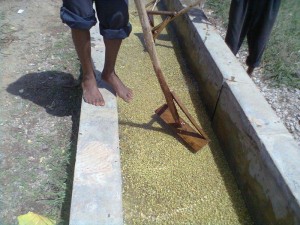Important changes have happened in the last decade to Ethiopia’s coffee sector. There has been increasing adoption of improved production, harvest, and post-harvest practices, with positive impacts on coffee productivity and incomes. Presented at EDRI, this research represents the first survey results on a national scale that gathers the key facts on Ethiopia’s coffee sector from those upstream in the value chain.
Upstream marketing has improved and there have been large investments in developing processing capacity, by extending the coverage of wet mills. These changes seem to have been driven by greater availability of extension agents, market reform, and high international prices. However, despite these changes, yield growth has been small. The prevalence of coffee diseases, weather shocks, lack of improved seedlings, and saving constraints, has impeded uptake of improved practices with consequent repercussions on farmers’ productivity and income.
